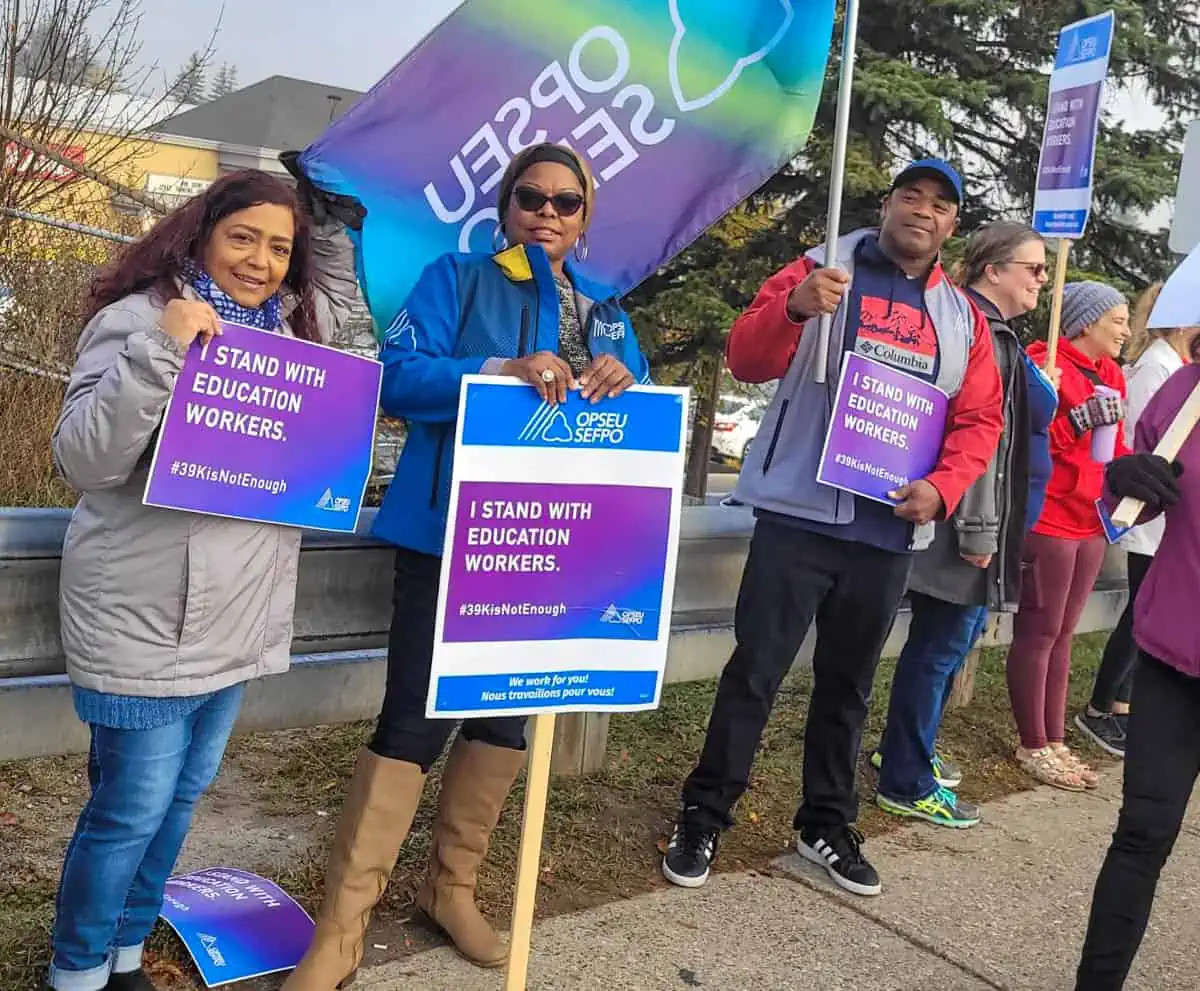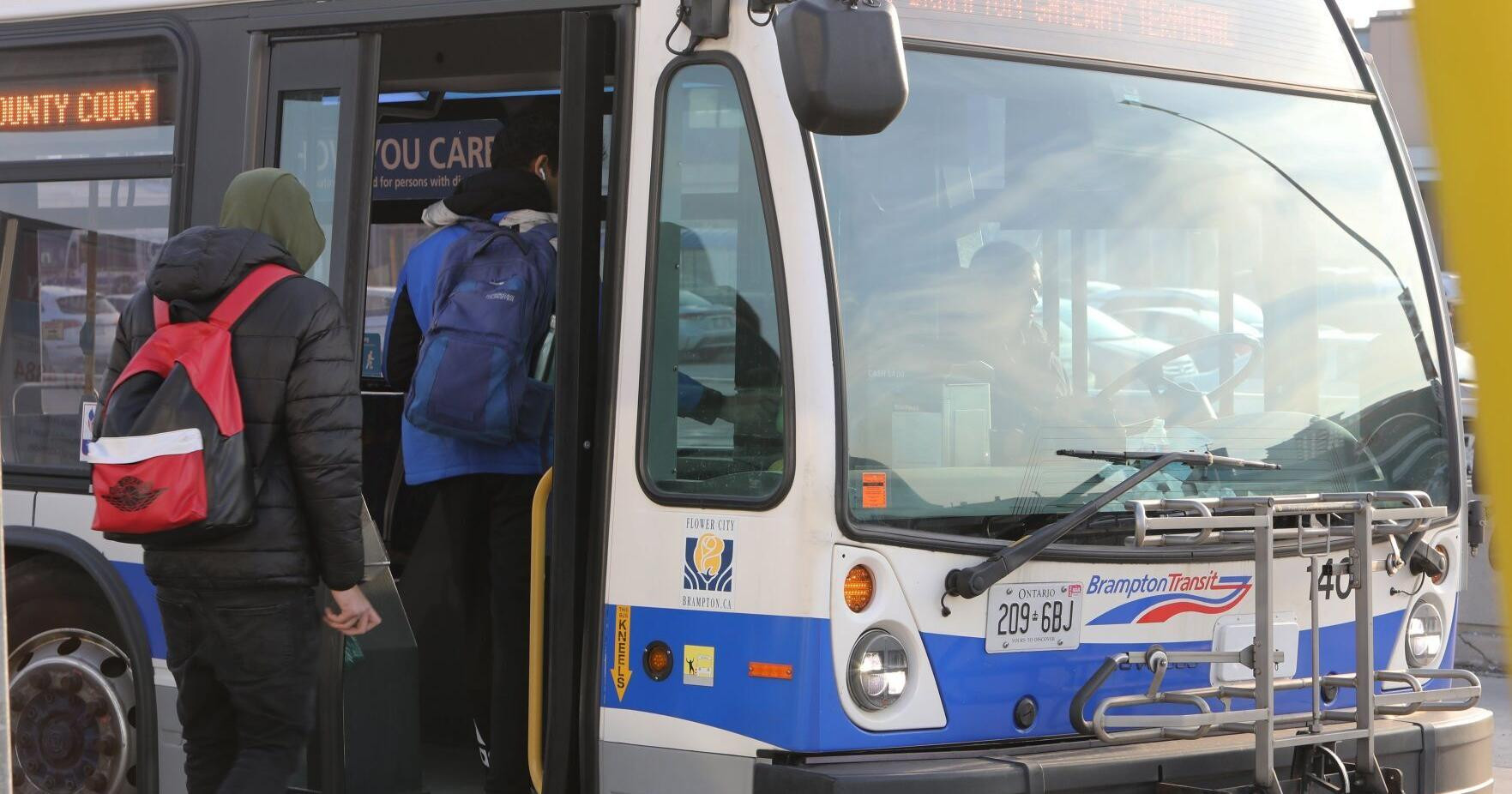D’importants services publics sur lesquels compte la population pourraient bientôt être perturbés, car les travailleuses et travailleurs de la Ville de Brampton, dans le sud de l’Ontario, approchent de la date limite de grève.
The Ontario Ministry of Labour has released a report recommending against the establishment of a conciliation board, which would trigger a countdown to a potential strike or lockout involving CUPE 831 and the City of Brampton. The union, which represents 1,200 municipal workers, will be in a legal strike position at 12:01 a.m. on November 7, 2024, and the City could also impose a lockout.
“We have been at the bargaining table seeking a fair and comparable agreement, similar to what other Brampton staff have negotiated for our members, for almost nine months without success,” said Fabio Gazzola, President of CUPE 831. “CUPE 831 members provide essential services to Brampton. Our goal is to reach an agreement that avoids any disruption of these services.”
CUPE 831 represents workers responsible for road maintenance, performance halls, call centre, animal control, courthouse services, building and permit inspection, information technology, law enforcement, public transportation, city hall services (marriage licenses, taxes, accounting), administrative services, and parks and recreation services in Brampton.
“CUPE 831 members are part of the community and maintain Brampton’s public spaces and infrastructure with great pride,” said Fabio Gazzola. “We are asking for a fair agreement that meets the needs of our members, including protection for precarious and seasonal workers, and the maintenance of our public services. CUPE 831 does not endorse the funding of non-unionized staff by reducing staffing levels.”
CUPE 831 remains optimistic about the possibility of reaching a resolution before the deadline, thus avoiding the disruption of municipal services.
Impact of the Strike on Municipal Services
The strike of Brampton municipal employees has an impact on Brampton Transit’s public transportation service. The approximately 1,200 municipal employees of the City of Brampton have been on strike since Thursday morning, suspending or limiting several services to citizens, such as public transportation. The Municipality has indicated on its website that it will take all necessary measures to comply with the Brampton Transit network schedules.
Impact on Brampton Transit
The strike has resulted in several disruptions to public services:
- Increased wait times for public transportation
- Guided tours of animal shelters are suspended
- Reduced work by municipal regulatory officers
- Limited access to city hall for obtaining marriage licenses or municipal documents
The strike does not affect fire and ambulance services.
Why the Strike? What's at Stake?
The union, CUPE 831, has been negotiating with the city for months but has not been able to reach an agreement. The union is seeking a fair and comparable agreement for its members, including protection for precarious and seasonal workers, and the maintenance of public services. CUPE 831 is also opposed to the city’s plan to fund non-unionized staff by reducing staffing levels.
The city has said that it is committed to negotiating a fair agreement with the union, but it is also committed to managing its budget responsibly. The city has said that it is willing to compromise, but it is not willing to compromise on its core principles.
What Happens Next?
The strike is expected to continue until an agreement is reached. The city has said that it is prepared for a long strike, and the union has said that it is determined to fight for its members’ rights.
Could a Strike Happen in Other Canadian Cities?
While the situation in Brampton is unique, it highlights the growing tensions between municipalities and public sector unions across Canada. As cities face increasing budget pressures, they are looking for ways to reduce costs, and this often leads to conflicts with unions. The strike in Brampton could serve as a warning sign to other cities that they need to be prepared for potential labor disputes in the future.
The situation in Brampton is a reminder of the important role that public sector unions play in Canadian society. These unions represent workers who provide essential services to our communities, and they are often on the front lines of advocating for the rights of workers. The strike in Brampton is a sign of the challenges that these unions face in the current economic climate, but it is also a sign of their resilience and their commitment to their members.
Brampton Residents Speak Out
Residents of Brampton are feeling the impact of the strike. Many residents rely on Brampton Transit to get to work and school, and the delays are causing them significant inconvenience. The strike is also having an impact on local businesses, as many are seeing a drop in customers.
“I understand why the workers are striking, but I wish they would reach an agreement soon,” said one resident. “The delays are making it difficult for me to get to work on time, and I’m worried about the impact this is having on my job.”
“This strike is hurting our local businesses,” said another resident. “People are staying home instead of coming out to shop, and that’s hurting our local economy.”
The strike is a reminder of the importance of public services and the impact that labor disputes can have on our communities. Hopefully, the city and the union can reach an agreement soon and put an end to the strike.


















